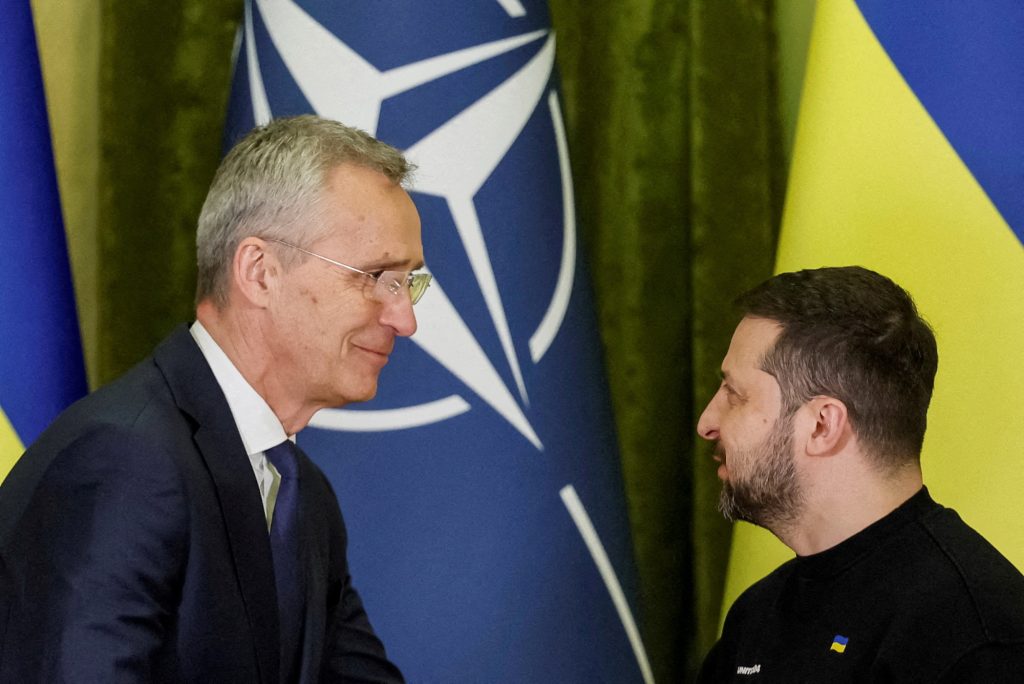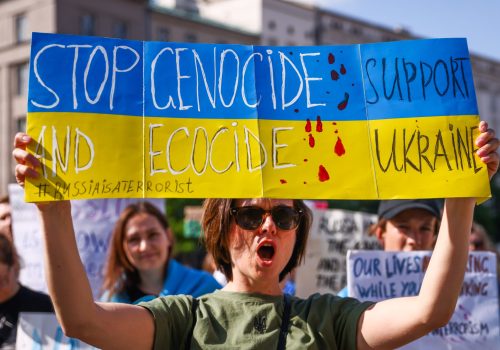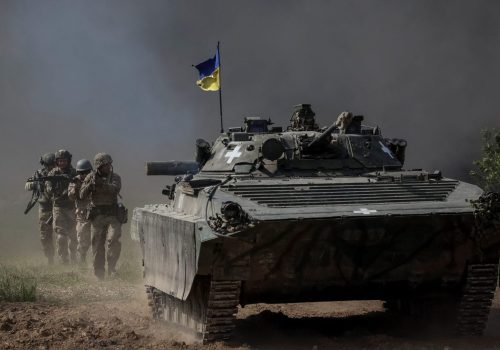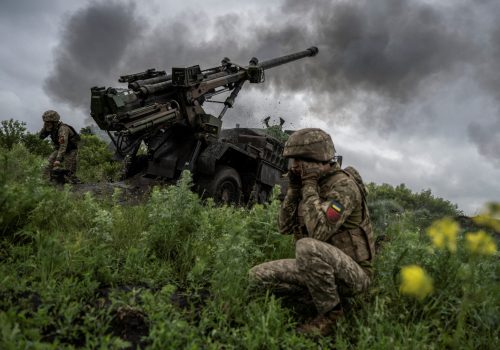Vladimir Putin claims one of the main goals of his Ukraine invasion is to prevent the country joining NATO. This objective may at first glance appear broadly reasonable, but on closer inspection, it actually goes directly against Russia’s own national interests.
The idea that Ukrainian NATO membership would pose a security threat to Russia ranks among Putin’s most enduring myths. In reality, however, no NATO member has ever threatened to attack Russia. On the contrary, Russia’s shared borders with NATO have always been strikingly calm and secure. Notably, this was also the case throughout the Soviet era and stands in contrast to some other Russian borders. If Ukraine joins NATO, it would significantly increase Russia’s own border security.
The interests of the Russian people are best served by a sustainable and lasting peace rather than wars of conquest. Ukraine’s NATO accession would strengthen the alliance and improve its ability to resist Russian aggression. This would greatly reduce the risk of a new war in Ukraine, as not even Putin is ready to enter into an open war with NATO. Instead, the Russian population would be much likelier to live peaceful lives.
Stay updated
As the world watches the Russian invasion of Ukraine unfold, UkraineAlert delivers the best Atlantic Council expert insight and analysis on Ukraine twice a week directly to your inbox.
Crucially, Ukrainian NATO membership would mean an end to dreams of restoring the Russian Empire. This would be good news for all Russians, who have no need of an empire. In today’s world, imperial ambitions bring crushing economic and moral burdens that hamper the development of a country and lead to stagnation.
It is also inaccurate to assume, as many currently do, that a majority of Russians share the same imperial aspirations promoted by Putin himself. In fact, during the years of the Soviet collapse, there were literally zero rallies calling on Moscow to prevent the various Soviet republics from securing independence, despite the fact that protests were possible at that time. Indeed, following the tragic events of January 1991 in Vilnius, when Soviet troops killed 13 Lithuanians, around a million people attended a massive rally in central Moscow demanding recognition of Lithuanian independence. These people took to the streets not in defense of empire but in support of freedom.
Back then, nobody saw the fall of the USSR as “the greatest geopolitical catastrophe of the century,” as Putin would later state. According to polling data, the Russian public only began showing signs of “imperial nostalgia” some 15 years later in the mid-2000s. This change in mood was due to official propaganda rather than any deep-seated notions of imperial identity.
Far from marking a regrettable retreat from empire, the collapse of the Soviet Union was an undeniably positive development for Russia. Similarly, the current revival of imperialism in Russia poses an existential threat to the country’s future. Ukrainian NATO membership would be a big step toward abandoning the idea of empire entirely, and that would be a positive development for all Russians.
It is clearly in Russia’s interests to have stable, predictable, and non-aggressive neighbors. NATO member states represent exactly this kind of neighbor. If Ukraine joins the alliance, this would go a long way to allaying fears within Russia over possible future Ukrainian revenge after the current war ends.
Eurasia Center events

Ukrainian accession to NATO would help raise living standards in the country by obliging the Ukrainian authorities to implement vital reforms. This would be particularly good news for Russia. Like any other country, Russia has an interest in the prosperity of neighboring states and stands to benefit from improved trade and other economic ties if Ukraine achieves a higher standard of living.
Joining NATO would also strengthen Ukraine’s democratic institutions. This would help demonstrate to the Russian public that democracy can thrive in the post-Soviet space. Russians are just as interested in personal freedoms and democratic values as anyone else, but they are bombarded with propaganda from the Kremlin convincing them that freedom and democracy are only possible in the West and will never take root inside Russia.
The Putin regime supports this incompatibility argument by pointing to various aspects of Russian society that allegedly make the country unsuitable for democracy, such as Russia’s dominant Slavic Orthodox culture. However, as a fellow predominantly Slavic Orthodox nation that many Russians view as extremely similar to their own country, Ukraine can debunk such arguments. Indeed, this is a key reason why the Kremlin views Ukrainian democracy as such a threat.
Unless Ukraine joins NATO, even the complete liberation of the country will not bring sustainable peace. Putin will not accept defeat and will inevitably attack again. This is exactly what Hitler would have done if the allies had not destroyed his criminal regime along with his war machine. Just as lasting peace was only possible after World War II due to the removal of the Nazi system, future peace in Eastern Europe will depend on the end of the Putin regime. This is clearly in the interests of the Russian people, and will be much more likely if Ukraine joins NATO. Membership of the alliance would provide Ukraine with long-term security, but the benefits to Russia itself would be no less profound.
Leonid Gozman is a Russian politician and commentator.
Further reading
The views expressed in UkraineAlert are solely those of the authors and do not necessarily reflect the views of the Atlantic Council, its staff, or its supporters.

The Eurasia Center’s mission is to enhance transatlantic cooperation in promoting stability, democratic values and prosperity in Eurasia, from Eastern Europe and Turkey in the West to the Caucasus, Russia and Central Asia in the East.
Follow us on social media
and support our work
Image: NATO Secretary-General Jens Stoltenberg and Ukraine's President Volodymyr Zelenskyy attend a joint news briefing, amid Russia's attack on Ukraine, in Kyiv, Ukraine. April 20, 2023. (REUTERS/Alina Yarysh/File Photo)




